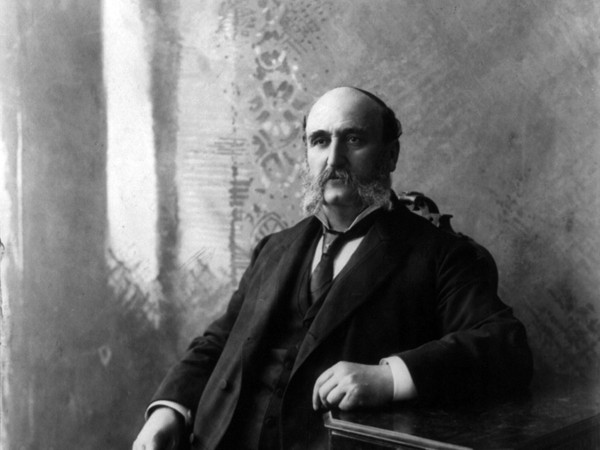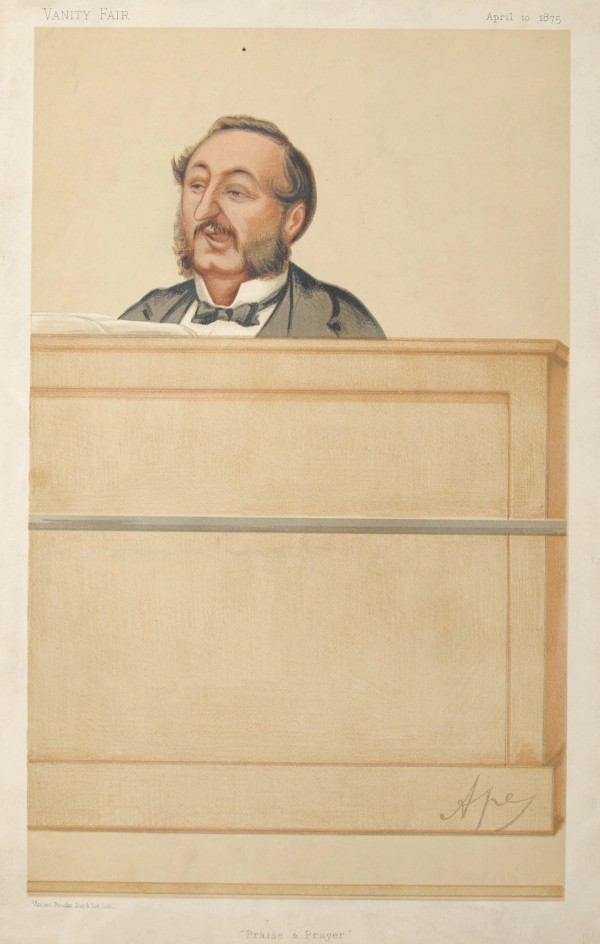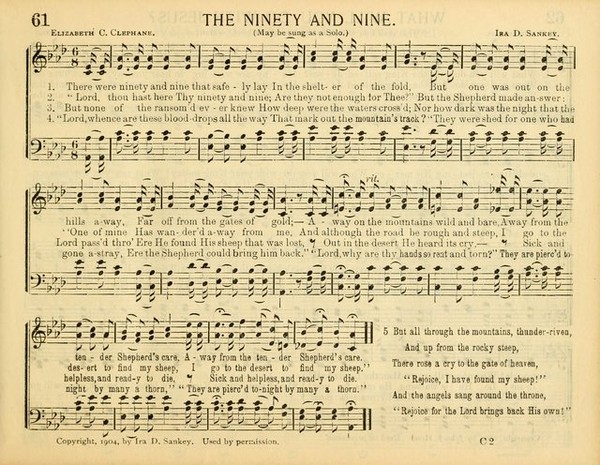
The Gospel Song Written While It was Played
D. L. Moody was an extremely popular preacher at the end of the nineteenth century. He preached to millions of people across the USA and the UK. He did not operate on his own, but he was part of a dynamic duo. Moody was a preacher, and he was accompanied by Ira D. Sankey, who was a singer. Moody’s revival campaigns were often called the “Moody and Sankey meetings” because Sankey’s singing was as much of a draw to the crowds as Moody’s preaching was.
One of the most popular songs that Sankey sang was “The Ninety and Nine,” which was about the parable of the lost sheep from Luke chapter fifteen. Sankey composed the music to the song almost accidentally.
Sankey Discovered the Words in a Newspaper
On May 18, 1874, Moody and Sankey were boarding a train from Glasgow, Scotland to Edinburgh. They had been holding revival meetings in Glasgow for three months and were going to Edinburgh for three days before heading to the highlands for a series of meetings. Sankey picked up a newspaper to read on the train, hoping to find news from his home country of America.
He scoured the paper for news from home, but he laid the paper aside when he found nothing. He later picked it up and saw a poem about the ninety and nine in the corner of one page. After carefully reading it over, he decided that it would make a good gospel song.
He told Moody about the poem, and Moody asked him to read it to him. Sankey passionately read the poem aloud, but when he was done, he looked up and saw that Moody had lost attention and was reading something else. Sankey was annoyed that Moody hadn't listened but still thought the poem could be of use later.
He Composed the Music Spontaneously
On the second day of the revival, Moody chose the “Good Shepherd” as the theme for the afternoon meeting and asked some of the pastors present to speak about the subject. 1After they finished, Moody asked Sankey if he had a song that matched the theme that he could sing to close the service.

A caricature of Sankey sitting behind his organ.
As Sankey sat at the organ, his mind went blank. He couldn't think of an appropriate song to sing. Suddenly, he felt he heard a voice saying to him, "Sing the hymn you found on the train!"
Sankey rejected the thought. It was impossible. It was just a poem, and there was no music written for it.
He heard the voice again, prompting him to sing the song. He took out the newspaper clipping, set it on the organ, said a silent prayer for God to help him, struck a key of A flat, and started singing the song. He made up the melody note by note as he sang.
There was a great stillness in the room when he finished the song. He felt that the song had reached the hearts of the Scottish audience. The song greatly moved Moody, and with tears in his eyes, he asked Sankey, “Where did you get that hymn? I never heard the like of it in my life.”
Sankey replied, “Mr. Moody, that’s the hymn I read to you yesterday on the train, which you did not hear.”
That was the first time Sankey sang The Ninety and Nine, but it certainly wasn't the last. It became one of the most requested songs for Sankey to sing as he traveled with Moody across the UK and later America. The song remained the same—note by note— as he had spontaneously first sung it. 2Below you can listen to a recording of Sankey singing it:
The Author’s Sister was in the Same Meeting
The words of the poem were written by Elizabeth C. Clephane, who had died in 1869. Sankey had no idea that her sister was present in the meeting where he first sang the song! He found out later when she wrote him a letter thanking him for singing the words of her sister’s poem.
Elizabeth’s sister said she had been a very quiet child, shrink from notice, and was always absorbed in books. As she grew up, she was recognized as the cleverest of the family. She was first in her class and a favorite with the teacher. Her love for poetry was a passion. She wrote “The Ninety and Nine” for a friend, who had it published in a publication named “The Children’s Hour.” 3It was copied and reprinted in various publications but never gained popularity until Sankey started singing it.

Sheet music for The Ninety and Nine.